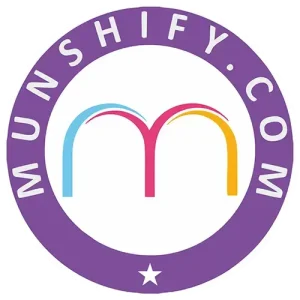Staying connected and managing workforce operations efficiently has become essential. HRMS Mobile Apps are now leading the shift in how human resource activities are handled. From attendance tracking to performance reviews, mobile-first HR solutions are reshaping workplace experiences for both employees and HR professionals.
The Growing Need for HRMS Mobile Apps
The demand for flexible and accessible HR solutions has significantly increased. With remote work, hybrid models, and a digital-first workforce, HR departments are under pressure to modernize their systems. As a result, HRMS Mobile Apps have been adopted by businesses looking to stay ahead of the curve.
Mobile apps allow HR teams to manage employee records, payroll, and compliance processes from anywhere. Meanwhile, employees can apply for leaves, view pay slips, and update personal information without being tied to a desktop. This accessibility improves engagement and reduces administrative bottlenecks.
Manage your HR tasks easily with HRMS Mobile Apps — start using it today!
Benefits of HRMS Mobile Apps for Modern Workplaces
Easy Access Anytime, Anywhere
With HRMS apps, employees and HR teams don’t have to sit at a desk to get work done. They can check or approve things like leave requests or pay slips right from their phones. This makes HR tasks quicker and helps everything run more smoothly, no matter where people are working from.
Better Communication
Mobile apps make it easy to send important updates to everyone at once using push notifications. Whether it’s a new policy or an event reminder, employees get the message instantly. Some apps even let employees talk back or give feedback, which helps keep communication open between staff and management.
Fewer Mistakes in Employee Data
When employees can update their own information—like phone numbers or addresses—there’s less chance of mistakes. This helps keep records correct and up to date, and it saves HR teams time because they don’t have to enter everything manually.
Happier, More Involved Employees
HRMS apps let employees do things themselves, like apply for leave, check their salary details, or sign up for training. This makes them feel more in control and involved in the company, which leads to higher satisfaction and better engagement at work.
Smarter HR Decisions with Real-Time Insights
Many mobile HR apps show helpful data and reports, like how many employees are taking time off or trends in hiring. This helps HR managers make smarter choices based on real numbers.
Learn More: The Role of HRMS Software in Campus Recruitment & Fresh Talent Onboarding.
Why Mobile-First is the Future of HR Management
A mobile-first approach focuses on designing solutions primarily for mobile users before adapting them to desktops. This strategy has been widely adopted in other areas of software development, and now HR is catching up.
The modern workforce expects convenience and flexibility. Especially with millennials and Gen Z forming a large part of the workforce, mobile access to HR services is no longer a luxury—it’s a necessity. HRMS Apps have become the bridge connecting employees to HR functions, no matter where they are.
Additionally, mobile-first HRMS platforms are usually cloud-based. This ensures secure storage, easy updates, and smooth scalability as a business grows.
Challenges in Implementing HRMS Mobile Apps
Keeping Data Safe
HRMS apps store private and important information about employees, like their salaries, addresses, and work details. If this information isn’t well protected, it could get stolen or misused. That’s why companies need to make sure the app has strong security features like passwords, data encryption, and limited access. They also need to keep the app updated and follow data protection rules to keep everything safe.
Getting Employees to Use the App
Sometimes, employees are not used to using apps for HR tasks and may prefer old methods like paper forms or emails. If they don’t understand how to use the app or don’t see why it’s useful, they may ignore it. To fix this, companies should give simple training, show the benefits of using the app, and make sure it’s easy to use. With the right support, employees will feel more comfortable and start using the app regularly.
Connecting with Other Systems
Most companies already use other tools for things like payroll, attendance, or performance tracking. The new mobile HRMS app needs to work well with these existing tools. If the systems don’t connect properly, it can cause problems like missing or wrong data. That’s why it’s important to make sure the app can smoothly connect with other systems so everything works together without confusion.
Embrace the Future with HRMS Mobile Apps
HR management is evolving rapidly. Businesses that want to stay competitive must adapt to these changes. HRMS Mobile Apps offer the convenience, flexibility, and efficiency that modern workplaces demand. By embracing mobile-first HR solutions, companies can create a more engaged, informed, and agile workforce.
Whether it’s tracking attendance, sharing company policies, or managing appraisals, the future of HR lies in the palm of your hand.
FAQs About HRMS Mobile Apps
1. What are HRMS Mobile Apps?
HRMS Mobile Apps are mobile applications designed to manage various human resource functions like attendance, payroll, leave management, performance tracking, and employee engagement. These apps provide employees and HR teams with easy access to HR services anytime, anywhere.
2. Why are HRMS Mobile Apps important for businesses today?
With the rise of remote and hybrid work, HRMS Mobile Apps help businesses stay connected with their teams. They offer flexibility, faster response times, and improved employee engagement, making HR processes more efficient and accessible.
3. Are HRMS Mobile Apps secure?
Yes, most modern HRMS Mobile Apps use advanced encryption, multi-factor authentication, and cloud-based security protocols to protect employee data. However, it’s important to choose a trusted vendor with a strong focus on security.
4. Can small businesses benefit from HRMS Mobile Apps?
Absolutely. Small businesses can benefit from cost-effective, cloud-based HRMS Mobile Apps that automate repetitive HR tasks, reduce paperwork, and improve overall productivity—even with limited resources.



